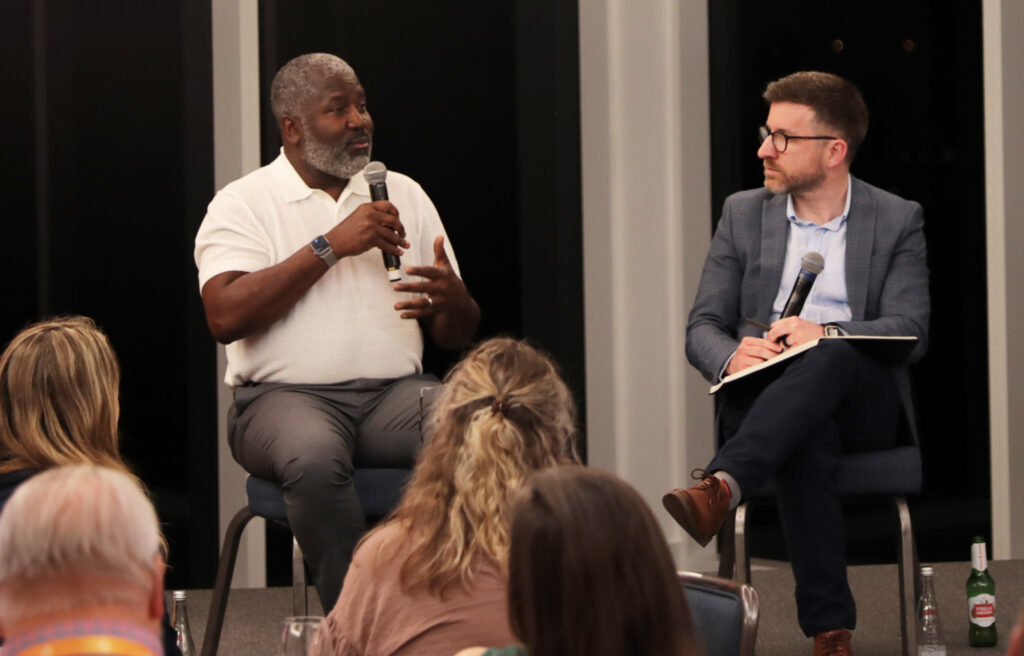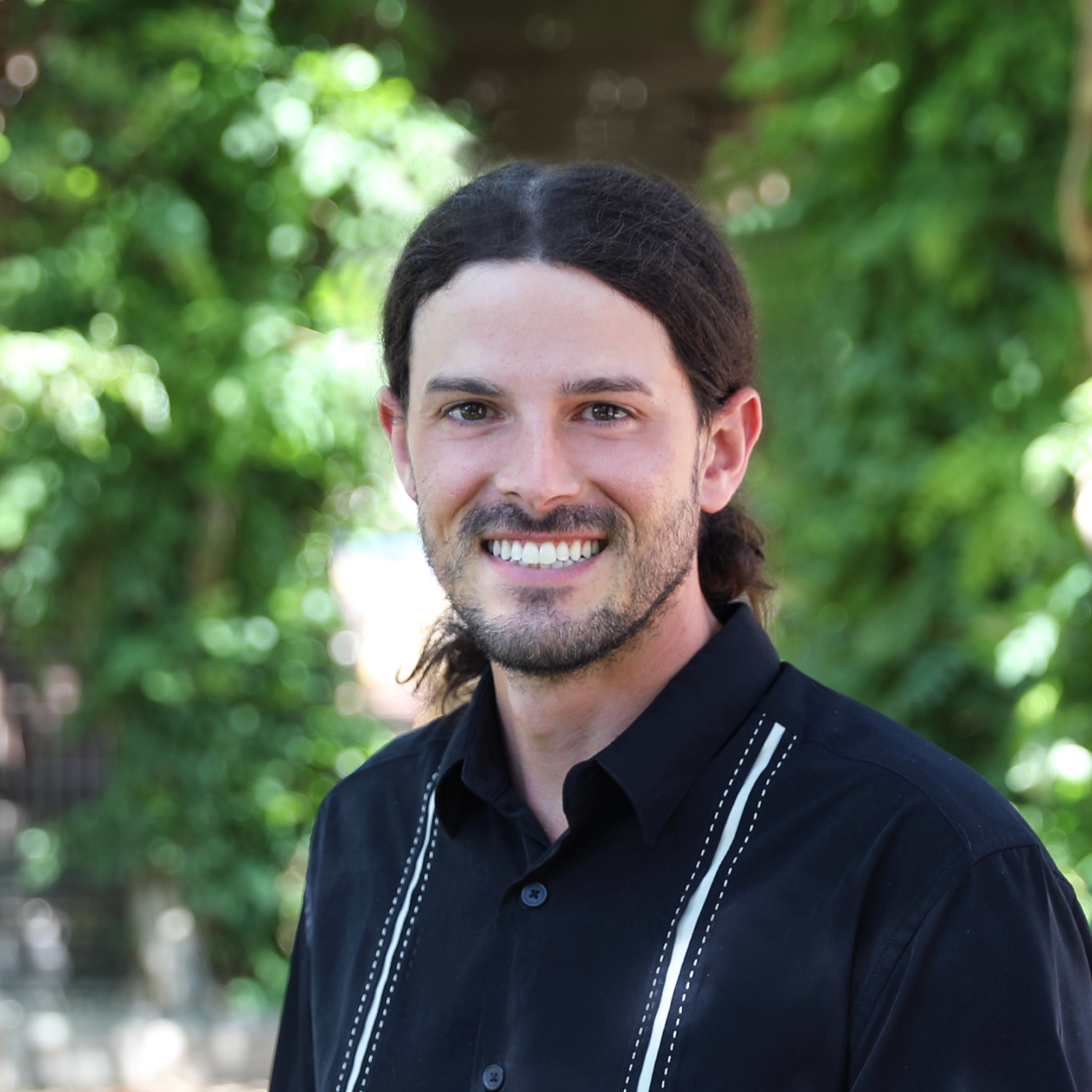Agency, Character, and Choice: Insights from Ian Rowe at ISCRC
Ian Rowe’s career is as diverse as it is impactful. With leadership roles at the Bill & Melinda Gates Foundation, MTV, and the Public Prep charter school network, his experiences have shaped a unique approach to education reform. He is the CEO and co-founder of Vertex Partnership Academies, a senior fellow at the American Enterprise Institute and a frequent commentator on school choice, family formation, and the power of moral character in overcoming obstacles.
Rowe shared his vision for empowering students through education that emphasizes agency, character, and decision-making during the keynote dinner session at the 2025 International School Choice and Reform Conference (ISCRC) in Fort Lauderdale, Florida. Interviewed by EdChoice’s Michael McShane, Rowe shared insights into his work as the CEO of Vertex Partnership Academies and his broader philosophy on education and opportunity.
What Makes Vertex Partnership Academies Special?
Rowe described Vertex Partnership Academies as a place where students are encouraged to take charge of their futures. “We want our kids to see themselves as decision-makers in their own lives,” he explained. Rooted in the International Baccalaureate (IB) curriculum, the schools focus on character education through the four cardinal virtues: courage, justice, temperance, and wisdom. One of the standout programs, “Pathways to Power,” teaches the “success sequence,” which Rowe explained as, “a set of decisions that—if followed—can dramatically improve the odds of avoiding poverty and achieving stability. But it’s not about telling them what to do; it’s about giving them the data and letting them decide for themselves.”
Rowe recounted a powerful moment when he introduced the success sequence to a group of low-income ninth-grade students. He asked whether they would want to know about a series of decisions that could significantly improve their chances of financial success.

Rowe said to the students: “‘If you knew that there were a series of decisions in your control, that when kids just like you followed that series of decisions, 97% of the time they avoided poverty, and the vast majority entered the middle class or beyond, would you want to know what those decisions are?’ The students looked at me like, ‘Sure, of course, yeah, tell us.’ ‘Well, there are some grownups who think that I shouldn’t tell you.’ The students looked at me like I was crazy and said, ‘You tell us. You tell us. You can’t just string this out there. Let us decide whether or not this information is useful to us and our lives.’ That was really powerful to me.”
Rowe said that the success sequence has not been without controversy though. Critics accuse it of imposing middle-class values, but Rowe’s conversations with families have revealed overwhelming gratitude for the practical guidance.
“Many parents expressed relief, saying, ‘Thank God someone is teaching this to our kids, because I wish I had learned it growing up,’” Rowe said.
This underscores a broader theme in Rowe’s work: schools must often fill gaps left by other institutions like churches or community organizations, which historically played a significant role in providing moral and life guidance.
School Choice Opportunities and Challenges
Beyond the success sequence, Rowe zoomed out to discuss the state of school choice in America. He highlighted the disparities between families of different socioeconomic backgrounds, noting that middle- and upper-class families often have inherent access to choice through financial resources. By contrast, low-income families in many states remain constrained by limited options.
However, Rowe expressed optimism about the current momentum for school choice, citing progress in states like Arizona, Florida, and Ohio, where education savings accounts and vouchers are expanding parental control. He also praised ongoing legal battles to allow public funding for religious schools, arguing that families should have the right to use their tax dollars at institutions that align with their values.

Ian Rowe and Michael Q. McShane
Shaping Education Through Culture and Media
Rowe’s perspective on education was molded by his career outside of the traditional school settings. While at MTV he oversaw campaigns like “16 and Pregnant” and learned the power of media to shape culture and influence behavior. The show, which highlighted the challenges of teen pregnancy, contributed to meaningful declines in teen sexual activity and pregnancies. This experience taught Rowe to look beyond academic metrics and consider the broader societal factors influencing students’ lives.
Rowe also spoke candidly about the challenges of recruiting teachers who align with Vertex’s vision and countering ideological opposition to their methods. Despite these obstacles, Rowe’s commitment to fostering respect, independence, and confidence in students remains unwavering.
“We treat [students] as future decision-makers in their own lives,” Rowe said.
Moving Forward
As the session wrapped up, Rowe left attendees with a powerful reminder: the fight for equitable school choice and meaningful education reform is far from over. His work at Vertex Partnership Academies serves as an inspiring model of what is possible when education prioritizes agency, character, and choice. As states continue to expand school choice initiatives, Rowe’s vision offers a blueprint for how schools can empower students to lead purposeful and successful lives.




